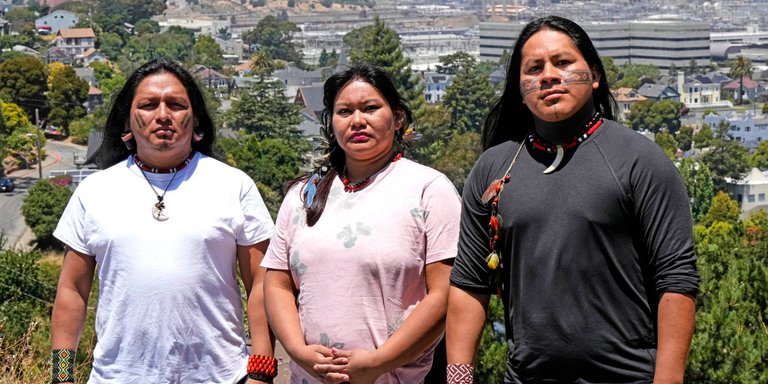The Latin American Report # 522

This is an interesting AP report on the struggle of the Waorani and Kichwa Pakkiru Indigenous peoples against oil exploitation on their ancestral lands in Ecuador. A delegation from these groups traveled to California to educate the public and local lawmakers about the Amazonian origin of the crude processed in massive refineries like Chevron Long Wharf, in Richmond. In this context, a resolution was introduced in the state Senate urging authorities to reassess California’s role in the Amazon crude trade, in which it plays a leading role. The Waorani’s fight reveals the profound rift between their views on society, politics, and nature and those of government leaders—leaders who are clearly beholden to actors capable of ensuring either their permanence or downfall. While the government of Daniel Noboa is promoting 14 new oil blocks—covering over 2 million hectares of sacred Indigenous rainforest—, the Waorani and Kichwa Pakkiru demand that the oil must remain untouched underground, dynamically extending the spirit of the popular and democratic veto against drilling in Yasuní National Park.
The president of the Waorani people in Ecuador called on California officials to consider whether the state "should continue receiving crude from the Amazon," which would amount to complicity in the violation of their rights—a pattern of state violence acknowledged earlier this year by the Inter-American Court of Human Rights. "[They] are on the front lines asserting their rights and resisting oil extraction," California State Senator Josh Becker said on the floor on Monday. "They are defenders of a living rainforest that stores carbon, regulates the global climate, and sustains life." "The Golden State, if it wants to be a climate leader, needs to take action," Amazon Watch’s director for climate, energy and extraction industry told AP. "California has an addiction to Amazon crude," he concluded.
The AP article also connects this issue to the Brazilian context, where the question of environmental preservation goes far beyond oil. For instance, although often framed as a debate on sovereignty and decoloniality, the legal controversy that has clouded the signing of the EU–Mercosur free trade agreement centers on Brazil and its bloc partners defending their right to regulate deforestation to expand cattle ranching. However, I think that the outcomes of this activity have done little to enhance the food security of their own populations. Regarding oil exploitation specifically, there is a stark contrast between Lula’s historically pro-nature discourse and his administration’s current push for new partnerships and extraction initiatives. This week, Planalto “auctioned off several land and offshore potential oil sites near the Amazon River as it aims to expand production in untapped region,” AP reports, despite protests from Indigenous peoples and environmental activists.
 Source
Source